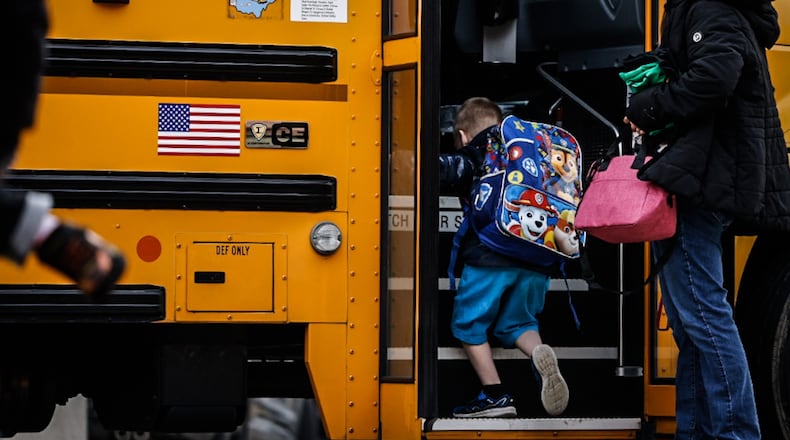The district hired Cropper GIS in December 2023 to analyze multiple options for redistricting in accordance with the district’s current strategic plan.
Redistricting generally means redrawing the boundaries for a district’s schools. Some school districts, including Miamisburg earlier this year, have used the process to change their schools by grade level.
“The decision to move forward with the study was based around the building utilization that we currently have,” Enix said, noting the contrast in size between each of the district’s five elementary schools.
“... (W)hen you have buildings that are different sizes, it creates an operational difference in the district with things like the number of teachers, number of students, and how that impacts special schedules, supervision, you name it — there’s a lot of differences when you have about a 160-kid difference between two buildings, so part of the initial look at redistricting was to balance that out.”
The Cropper study process included two public meetings and a survey of community input with 98 responses.
Cropper proposed 14 potential redistricting options. Those were narrowed down to two options.
Option A is a comprehensive option that attempts to balance utilization as much as possible, while not upsetting the demographic balance, documents state. Under this option, a total of 584 students, from kindergarten to sixth grade, would be impacted.
Option B looks to minimize student impact while improving utilization and maintaining demographic balance. This option would affect 281 students.
A public advisory committee was created, and that group of about 30 community members reviewed the options, taking into consideration effects on transportation and staffing and determining whether the potential benefits of the options would outweigh any negative effect of shifting that many students and faculty around.
“It all comes down to, is the movement worth all of the disruption across the district?” Enix posed.
Ultimately, the committee, along with Cropper, drafted a third and fourth option, both of which have more minimal impacts on students and staff.
“Options C and C.1 would move very few students around, but would clean up some of the school boundaries and improve transportation efficiency,” Enix said.
During the Thursday regular meeting, the school board will hold a comprehensive review of all options, Enix said, followed by a recommendation for how to proceed.
About the Author
